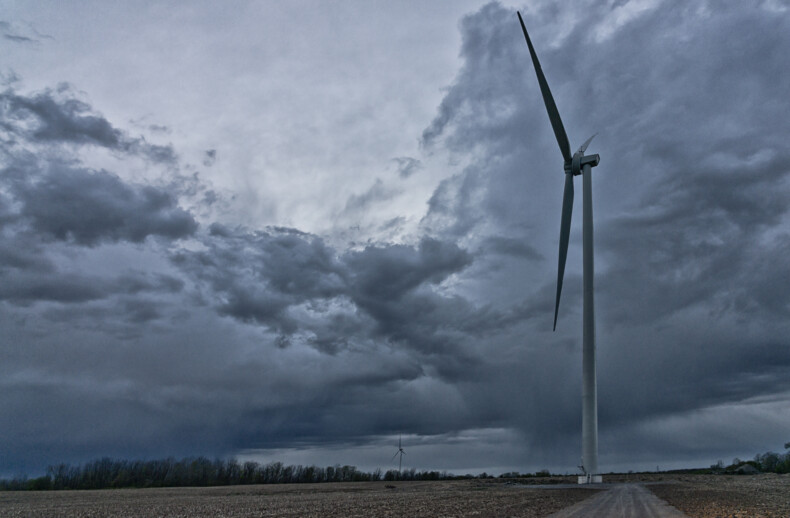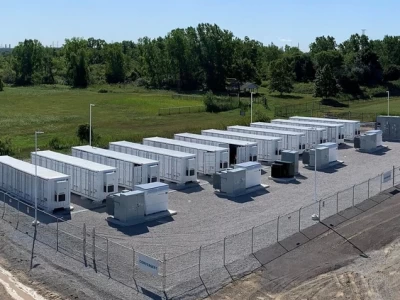It’s all in the numbers: what is the real cost of wind and solar? [Shutterstock image] The ways wind and solar are costed ignores the real costs of their unreliability…and of getting rid…


It’s all in the numbers: what is the real cost of wind and solar? [Shutterstock image] The ways wind and solar are costed ignores the real costs of their unreliability…and of getting rid…

Figures presented show actual loss of $25 billion in property value for U.S. houses near wind turbines In March, 2024, the science journal Proceedings of the National Academy of Sciences or PNAS, published…

Finally, a province is taking a step back from the wind and solar Gold Rush, and working to get it right August 11, 2023 You can hear the screaming from here—not from Alberta,…

July 26, 2023 The Ontario government has recently made several announcements about new nuclear energy builds: expansion of Bruce Power, and three small reactors at Darlington. The expansion “will ensure we have the…

A story in the Wall Street Journal details how the once easy wind power cash grab just got difficult, as community after community resists May 8, 2023 Concerns about losing valuable farmland, wind…


February 28, 2023
The recent Request for Proposals launched by Ontario’s Independent Electricity System Operator (IESO) resulted in interest by companies proposing new Battery Energy Storage Systems or BESS.
BESS is a relatively new technology and is currently being touted as an answer to wind power’s Big Problem of Intermittency (together with its other Big Problems of non-recyclable components and dependency on weather). Some of the proposals submitted were to be attached to existing solar or wind power generation installations.
The wind and solar lobbyist the Canadian Renewable Energy Association or CanREA (formerly CanWEA) actively promotes battery storage as an adjunct to wind power and says battery storage is key to multiplying Canada’s wind power fleet. CanREA has even added “storage” to its corporate banner.
Are we ready? No.
However, even the influential lobbyist points to concerns. First, there is a need to develop technical requirements for connecting and operating battery storage facilities CanREA says in its document, Laying the Foundation: “In many jurisdictions, the technical details may be included in the operating documents of the crown[1]owned utility. However, there are other elements, such as the scope of safety and environmental reviews, that will need legislated descriptions or will need to be included in the regulatory documents of the relevant ministry or government department.” (Page 10)
And, CanREA says, regulating authorities may need to get ready for BESS and develop new competencies: “In most jurisdictions, the mandate and/or rules of the regulating authority (for example the Alberta Utilities Commission) may need to be enhanced. Regulatory authorities will need sufficient expertise to fairly evaluate proposed energy-storage installations.”
Where public meetings, required by the IESO as part of the submission process, took place and were publicized,* it is clear that some communities at least were not completely unaware of the risks posed by BESS.
Prince Edward County citizens actively engaged in review of several BESS proposals, including one for a 250 megawatt installation. Their concerns were so well founded that the municipal council voted against approval of the facility, because of the risk of fire, environmental noise, and loss of valuable farmland.
Concerns were expressed in other communities too, including Arran-Elderslie in Ontario. The Mayor said this about fact-finding on battery storage: “township officials tried to gather information on battery storage projects from provincial agencies and officials while attending a recent Rural Ontario Municipal Association conference in Toronto, ‘but the information is fairly sparse’, Mayor Marriott told the Sarnia Observer.
“People aren’t even quite aware of what it is,” the mayor added.
We looked and asked
Based on these reports and inquiries from our community group coalition members, Wind Concerns Ontario conducted a review of news about battery storage system incidents, community concerns, and the current regulatory environment in Ontario.
Our conclusions were that there is a lot of work to be done to answer citizen questions and provide reassurance. In specific:
The IESO is expected to launch another, larger Request for Proposals later this year, and more BESS proposals are likely.
The WCO report is here:

The six-time book author, energy journalist and podcast host talks with Canada’s Dr Chris Keefer. And, he has a movie coming out in 2023! Energy author, podcast host and commentator Robert Bryce was…

January 31, 2023 The Independent Electricity System Operator or IESO released a document a few weeks ago titled Pathways to Decarbonization. The document was in response to a request from the Ontario Minister…

“Unbounded science and engineering fiction” says author who is a Top 100 Global Thinker In his 2016 book Power Density, published by the Massachusetts Institute of Technology Press, Vaclav Smil (Professor Emeritus, University…

Citizens of rural communities know the truth about electricity bills, environmental benefits and promises of jobs, says energy commentator Robert Bryce—and they want no part of wind and solar power projects November 13,…

It’s a very hot day in Ontario today. As we near noon on July 20, 2022, Ontario demand for power is 20, 904 megawatts. (Source IESO power data) Wind is doing better today…